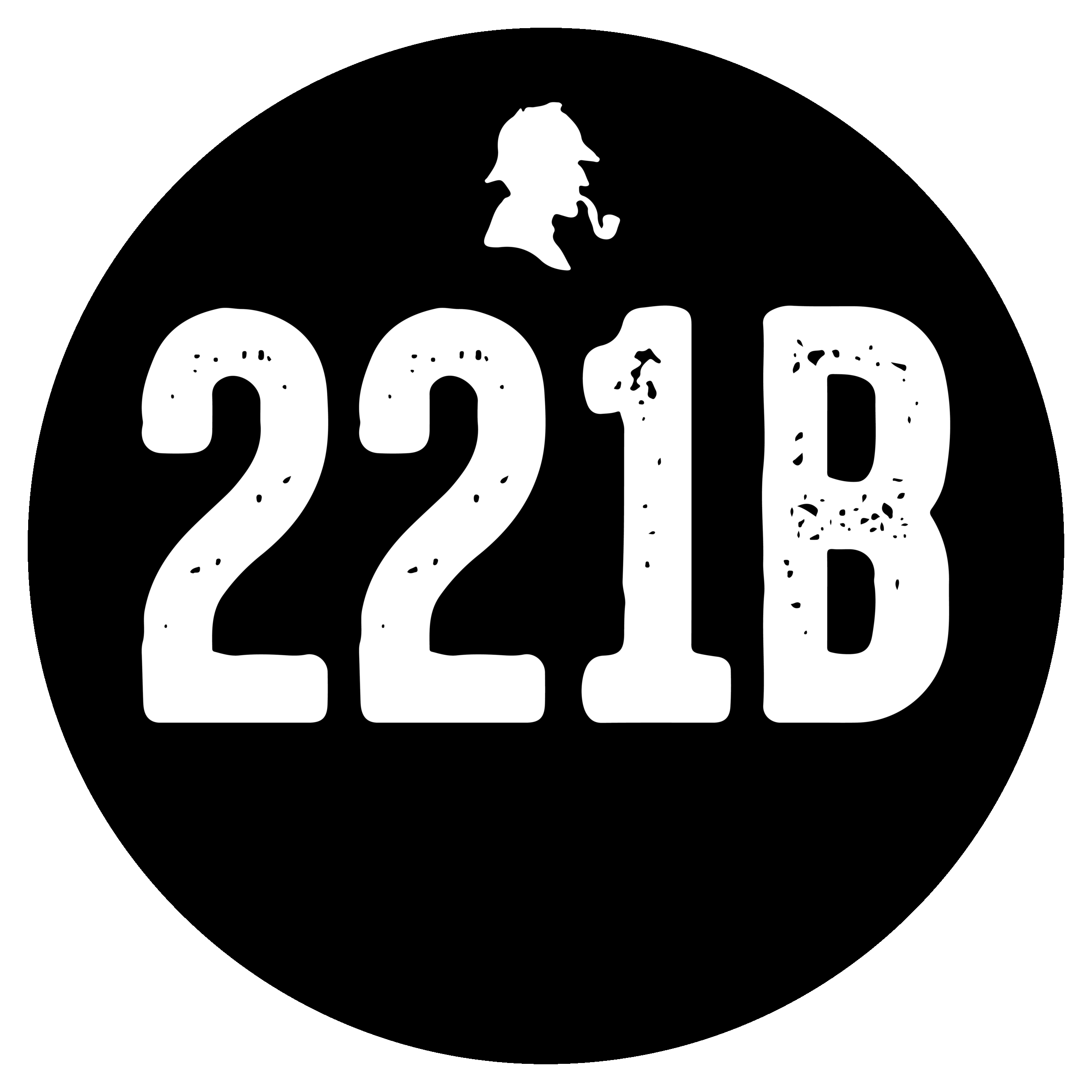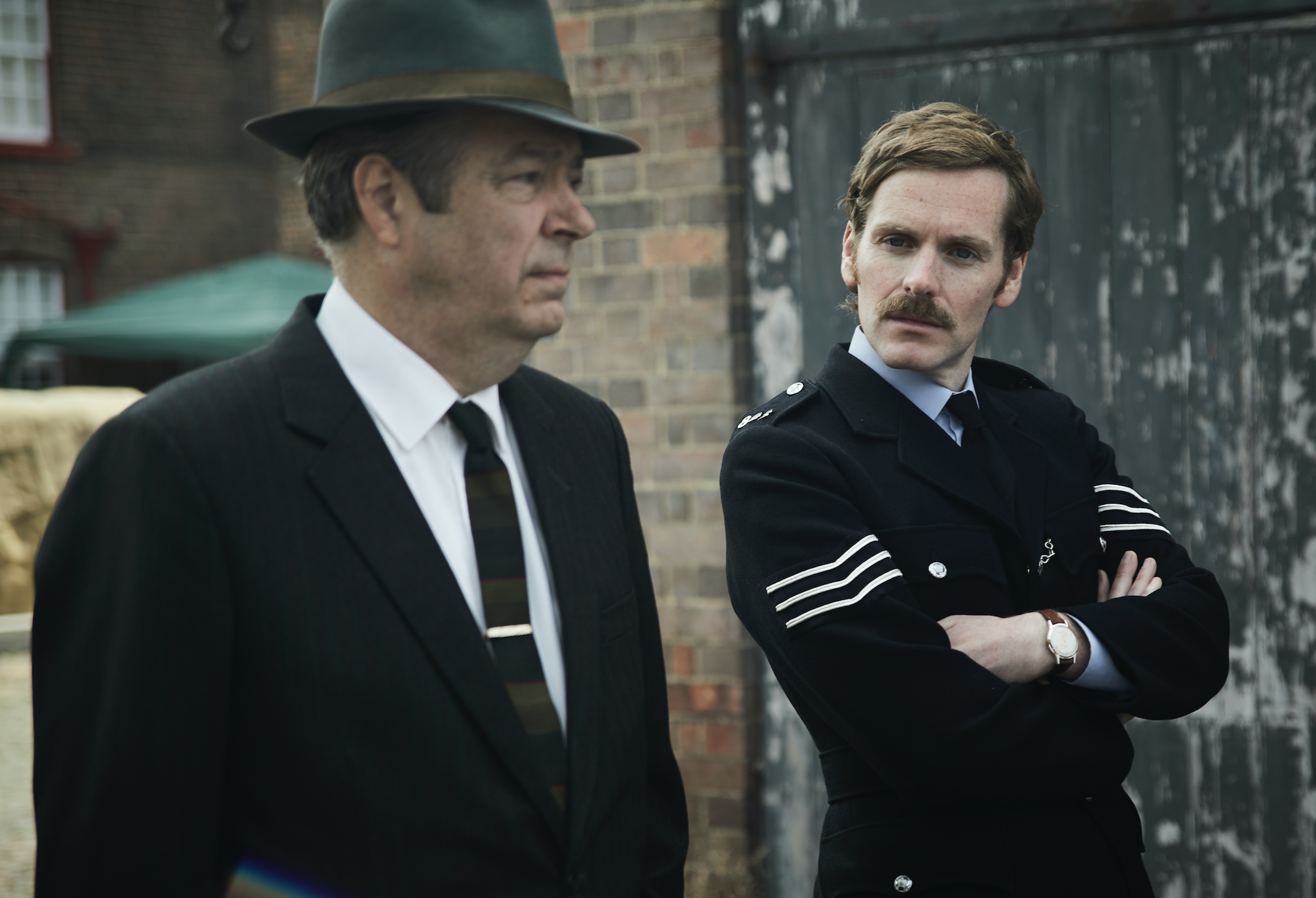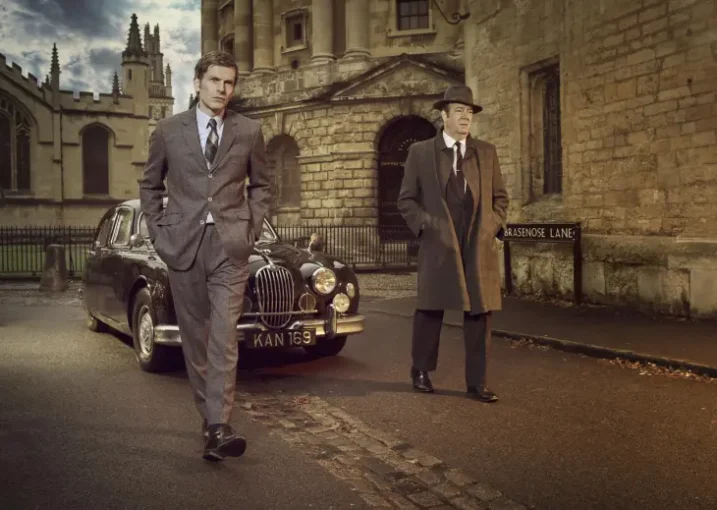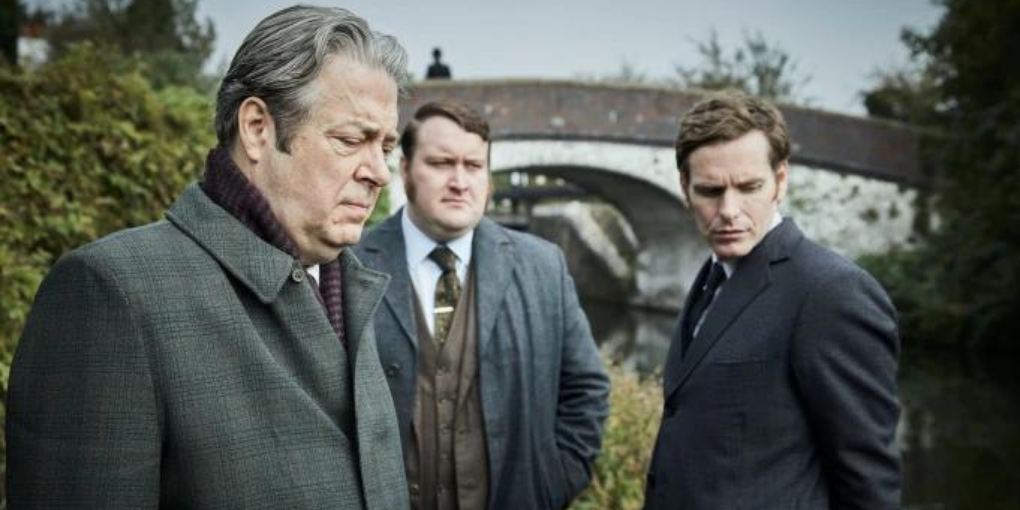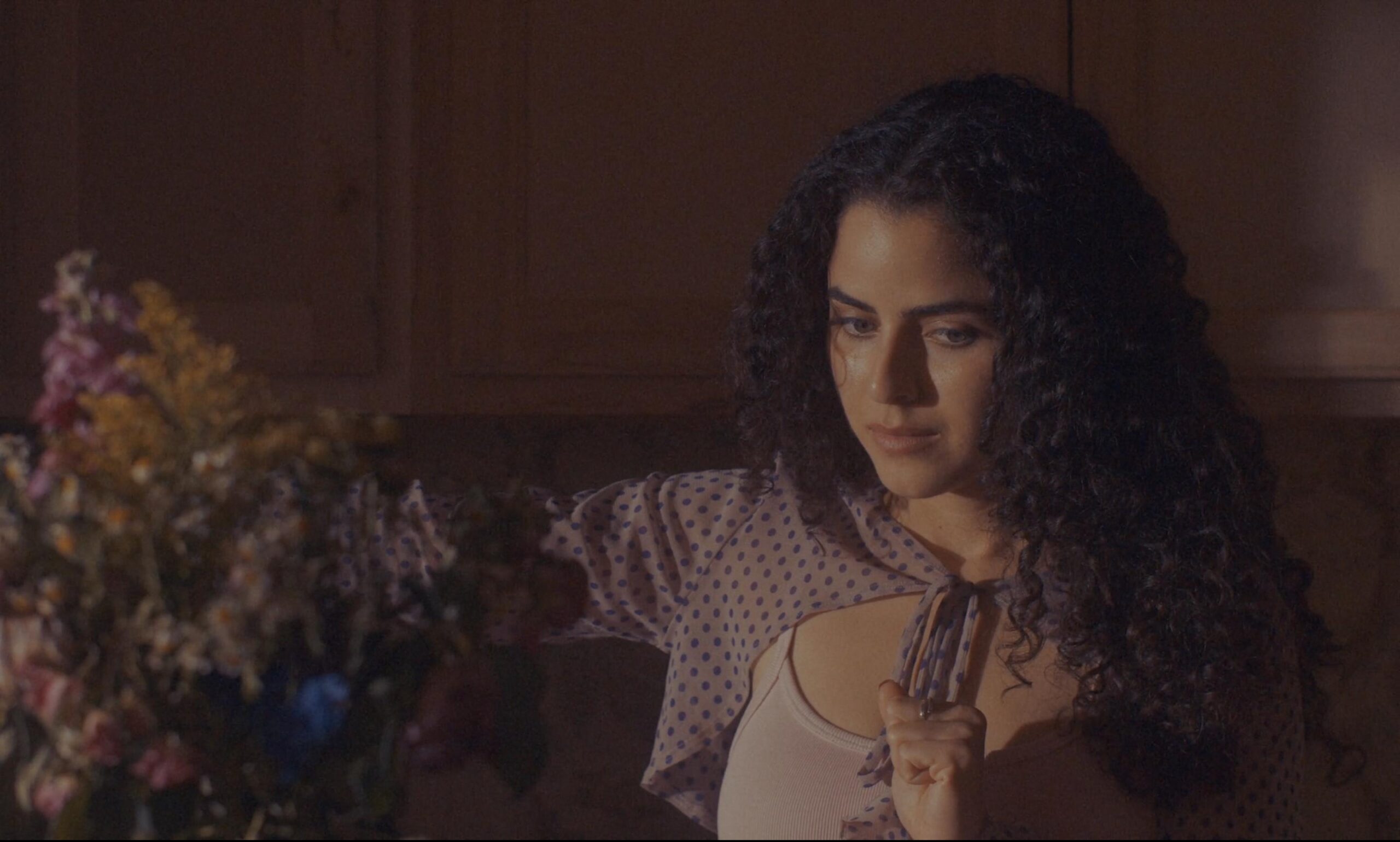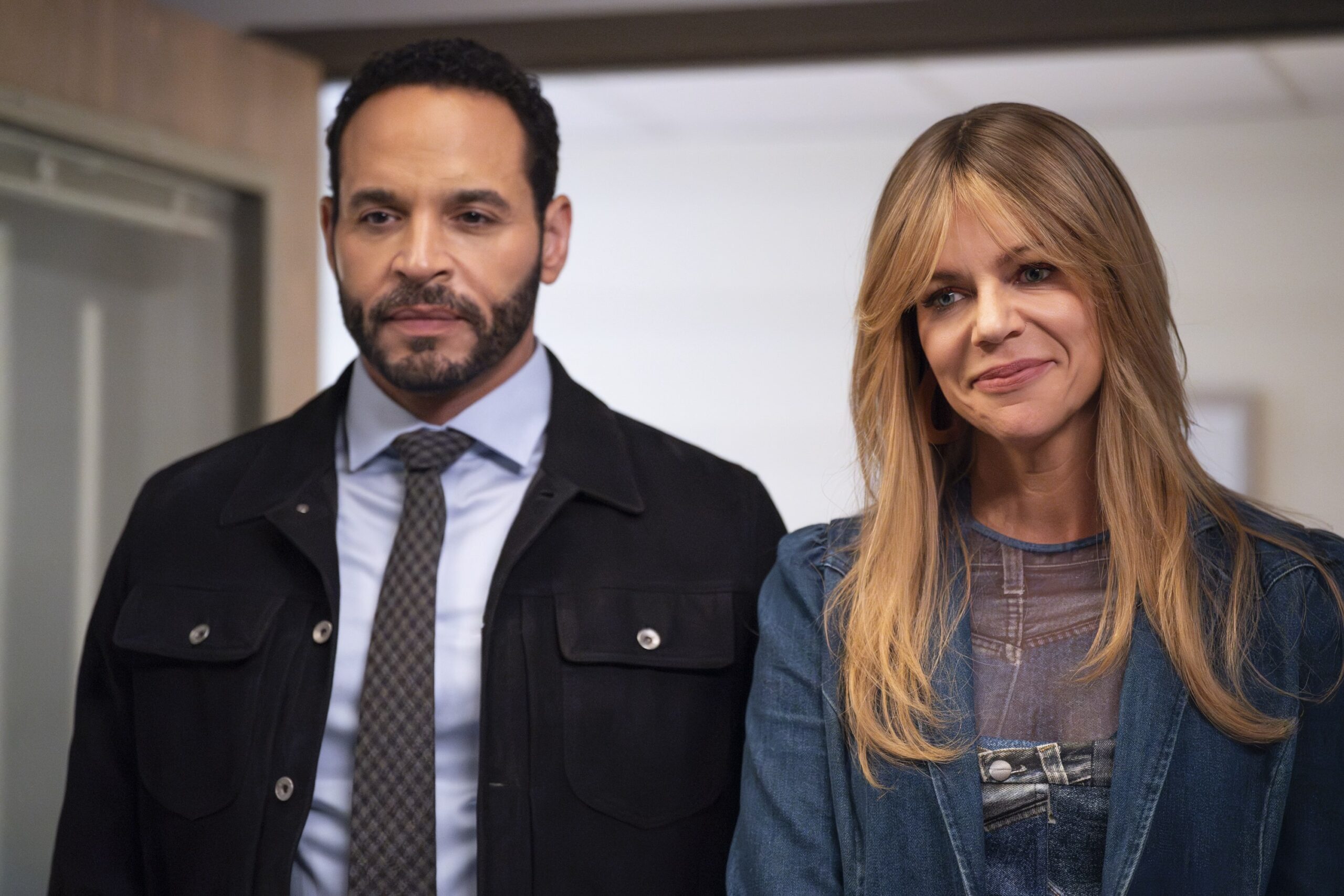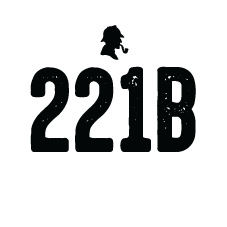One of the best series that has captured audiences worldwide and gained a loyal following over the years is Endeavour. We’ve been eager to interview its writer, Russell Lewis, for quite some time. However, since Lewis is someone who doesn’t often give interviews and prefers to stay out of the spotlight, many of our requests over the years were turned down. But when he learned that our cover topic was Colin Dexter and Morse, he said he couldn’t refuse us. We believe you’ll enjoy reading our conversation with this talented screenwriter, who has also contributed to many excellent adaptations of crime novels.
Your career starts with acting, but then you continue as a screenwriter. Can you tell us a little about yourself and your career?
Russell Lewis: I started as a child performer in ’67 on one side of the camera and ended up on the other side.
First of all, we would like to talk to you about Inspector Morse and Colin Dexter, because the cover topic of our magazine will be Colin Dexter’s Morse series in our new issue. As a master screenwriter who has his signature in good detective series, how can you describe Colin Dexter’s place in English literature and detective fiction?
Russell Lewis: Colin’s Morse novels place him amongst the immortals of detective fiction.
Inspector Morse series was adapted into a TV series in the 80s and 33 episodes aired. Based on the character of Lewis, who worked with Morse in the books, Lewis was also a 42-episode series. Endeavour, of which you have written the script for 8 seasons and of which you are one of the producers, continues. Endeavour is a production that audiences from all over the world eagerly await and watch. What do you think lies behind the fact that Morse is so loved and stands in a unique place?
Russell Lewis: There’s a melancholy about the character that people recognize. For all his grumpiness, you know he’d never intentionally be cruel. He always does his best to do the right thing and has a gentle quality to him when it comes to dealing with the vulnerable.
In Endeavour, we see Morse’s youth, which is never told in the novels. Here is a Morse who has just started as a cop. I think that writing such a period, which is not described in great detail in novels, requires much different work than making straight novel adaptations, what are your thoughts on this?
Russell Lewis: Well, it’s different insofar as it’s a blank sheet, you’re not working from a novel, so you can take it where you want within reason. But you have to be true to the character he becomes. Which isn’t to say that you can’t explore aspects of that character which haven’t been seen before. We’re not really the same people in mid-life as we were when we were in our twenties. And that gives you some leeway.
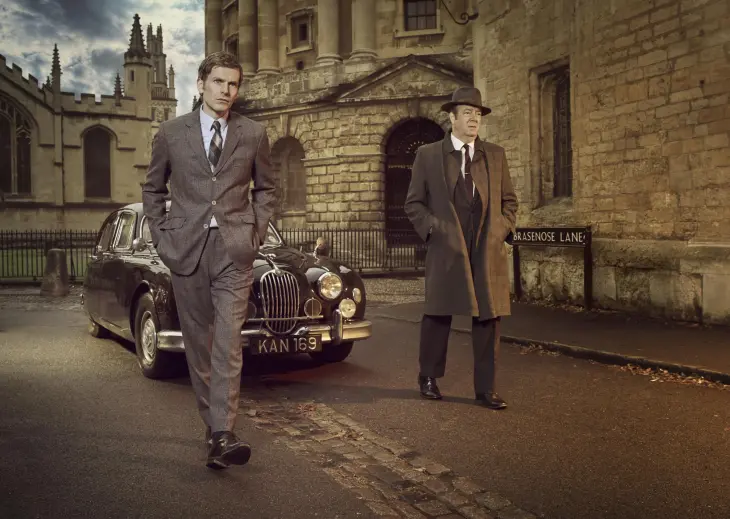
When I think of Morse, the concept of melancholy comes to mind. We begin to understand the reasons for this melancholy and loneliness in young Morse, whom we have been watching for 8 seasons. An unhappy childhood, troubled parent-child relationships, failures in male-female relationships, the walls Morse faces and hits in his professional life. Why do you think Morse is such a melancholic character?
Russell Lewis: See how deep the bullet lies? The breakdown of his parents’ marriage and the death of his mother while he was still a boy is an emotional wound that has never truly healed. All his relationships should really be viewed through that prism. When perhaps the most meaningful relationship of one’s life is torn away at a young age, it creates a powerful dichotomy. On the one hand a need to express all that unexpressed love to someone else, and at the same time, a terror that if one does so then the object of one’s affection will be likewise torn away again. So, he is forever caught in the middle of the two states.
One of the main characters in Endeavour is Thursday. In fact, there is no such character in the novels. This is your creation. A character that almost contrasts with Morse in certain points; he comes from a different generation, the value he attaches to the family is different, the way they do business is different. What does Thursday mean to you? Thursday and Morse’s relationship actually starts to evolve from a colleague relationship to a father-son relationship after a point. Is Thursday a ruler in Morse’s encoding of many human relationships?
Russell Lewis: I think when Endeavour first arrived at Cowley, he found in Thursday someone he admired and respected, and most importantly someone who recognized his qualities, abilities and potential and didn’t treat him with disdain or contempt. He sort of filled a father shaped hole in Endeavour’s life. A strong, moral, decent man. But as we’ve seen over the years, it’s never wise to put anyone on too high a pedestal.
Colin Dexter said that enough people were killed in Oxford with the Morse series, Oxford provides a very deep place for the stories, both in the series and in the novels. While you were writing the series, what did you pay attention to most while reflecting Oxford and the culture there?
Russell Lewis: We were, don’t forget, coming in third to bat after Morse and then Lewis – so the visual grammar of the Dexter universe was already established. When it comes to Oxford, I think what we were beguiled by – like most people who find themselves there – is the beauty of the place. It’s still, if you look in the right places, Charles Ryder’s city of aquatint. An old place filled for the better half of the year with young people starting out on life’s journey. Somewhere they live the first great dramas of their lives – first serious loves, perhaps — first heartbreaks. Friends made for life… and enemies too.
Those who inhabit any cloistered, partially sequestered world can make the mistake of over investing the knocks, shoves, and bruises the rest of us experience and shrug off on the outside with far too much meaning. A harsh word in academe, or the belief that insufficient respect has been paid to one’s place in the hierarchy can fester to a dangerous degree. At least in Endeavourland.
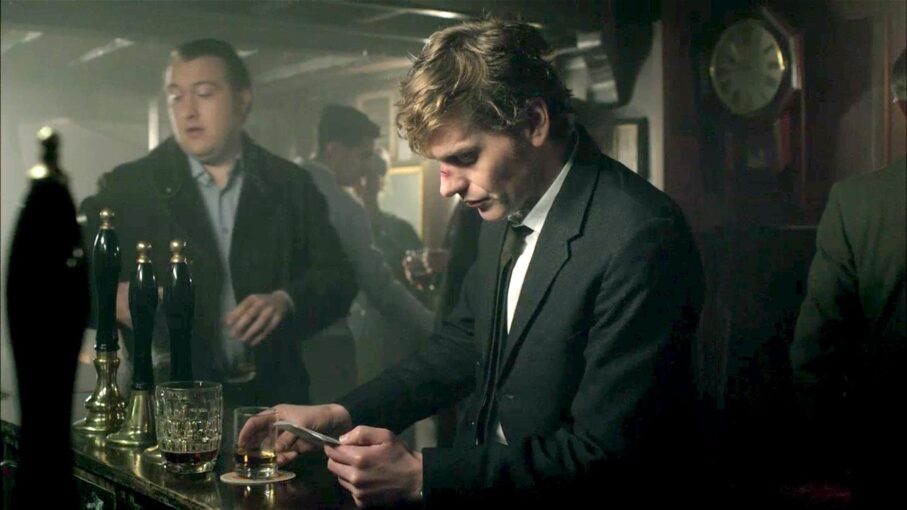
In Endeavour, we can understand and empathize with the main male characters such as Morse, Thursday, Strange, Bright. But it seems like the female characters are portrayed in a little more limitedd frame. This is somewhat the case with Dexter’s novels. Why do you think the female characters are a little more in the background? Why do we learn what/why they do in less detail?
Russell Lewis: Because we’re a bunch of ghastly sexists and misogynists. Seriously, it’s nothing sinister. The leading characters who drive the plot are a pair of men – one older, one younger – and we spend the majority of our screen time with them. The police world at the time of our story was overwhelmingly male, and for the most part those men interacted with other men. I’m madly invested in our female characters and wish there was more screen time to explore their lives. Scenes I’ve written for them sometimes don’t make the cut because we have to concentrate on delivering the whodunit – and it would be stretching credulity to involve them in the case each week. You follow the protagonist, it’s as simple as that.
The story takes place in the 60s in Endevaour, where we watch Morse’s first years as a policeman. The 60s and 70s were also very active periods politically. In this period, there are social movements spreading in Europe, which started with the cold war period after the Second World War and the 68 generation. In some episodes, we see anecdotes about the Cuban Missile Crisis or about racism, for example, but these are not usually connected with the main events. I think this might be a special preference. Crimes are always attributed to individual causes; larger causes are not preferred. Why is that?
Russell Lewis: Sometimes events in the wider world lend context, but it probably wouldn’t be a very challenging or satisfactory whodunit if the solution turned out to be A killed B because A didn’t like B’s politics. It’s one’s job when building or designing a whodunit to have a handful of potential suspects and motives for the audience or reader to examine and ponder in turn, only – if you’ve built it properly – to reveal in the denouement a suspect nobody thought of and a motive that you’ve concealed which only the detective can work out. If it was John murdered Ann because of her position on UDI in Rhodesia… it really wouldn’t be much of a puzzle, and you’d risk leaving the audience pretty unsatisfied.
Morse is also a good listener of music in the novels, he is an intellectual. It is obvious that the musical preferences are meticulously chosen in the series. What do you pay attention to in these choices? What kind of work are you doing?
Russell Lewis: Sometimes, I’ll have a specific bit of music in mind – but as often as not those choices are made by our composer Matthew Slater either unilaterally or in concert with the director or the production company execs.
One of the biggest problems that we encounter throughout the seasons in the series and that also affects Morse is the corruption in the police force. And we see Morse’s professional advancement hindered as he tries to oppose these. What does this tell us about his character?
Russell Lewis: It tells us he can’t be bought. The UK Police in the 60s and 70s faced very serious issues with corruption. Often at very high levels in specialist departments. Primarily the Metropolitan Police – which is responsible for the capital (save the City, which historically has its own force) – but also elsewhere throughout the country.
Shaun Evans gives a wonderful performance as Morse; we see his signature as a director in some episodes in the series. How did you work together to produce this character, which reflects a period of Morse that does not exist in the novels, and how do you find him as a director?
Russell Lewis: To begin with we didn’t really discuss it much. I extrapolated a young incarnation of Morse from Colin’s novels and primarily the television series and wrote the first script. Shaun was cast and worked from that material. As time has gone on he’s fed into the development of the series by expressing a view on some things that he’d like to explore as an actor. For example, Endeavour’s drink problem in the most recent series was something Shaun wanted to look at. I didn’t want to write an ‘heroic’ drunk, because in my experience there’s little heroism in alcoholism, but we found a place that worked for both of us. As a director, he’s very focused. For the last few years, he has directed the first film to shoot each year – even if the running order on screen is sometimes different. He has to shoot first, because thereafter he wouldn’t have the six to eight weeks of preproduction time available, as he’s acting in the next film. So. We shoot the films back to back across four to five months or so.
In Endeavour, each episode is around 90 minutes and in most of them, multiple crimes are combined in some way. Morse and his team carefully identify the criminals by putting the pieces together correctly. In recent years, with the increase in digital platforms, the episode durations of the series have started to shorten, people are mostly binge-watching. However, in Endeavour, it is vital to watch each episode carefully for 90 minutes and catch all the details. What do you pay attention to when setting up the main and side stories of the episodes, while constructing the clues and the details leading to the solution?
Russell Lewis: We usually start with an idea of some bit of global or social history or a bit of character development we want to explore. A ‘world’ – if you will. We often look at movies that were big in the year in question, or – something I’ll have seen in newsreels or documentaries – as with the armaments factory in ROCKET or the department store in SWAY. They were fabulously useful, as they gave us discrete, contained worlds with a ready suspect roster. And you just build it from there, really. I might have a bit of legerdemain – a bit of ‘find the lady’ style clueing up my sleeve, and I’ll see what can be spun off from that. The side stories often illuminate the main case in some way – either directly by helping to solve the puzzle, or by shedding light on some aspect of character or other. They have a lot of moving parts – and they’re carefully built, which is why it can get very tricky in the edit if we have to lose things for time, or if it’s something the network doesn’t like. It can risk bringing the whole house of cards down around your ears.
You have adapted many novels for the screen during your writing career. Cadfael series, Grace based on Peter James’ novel, Sharpe based on Berbard Cornwell’s novel… And of course, Lewis, Endeavour… The number of detective series and movies based on novels has increased a lot in recent years. As one of the master writers of this field, what do you think should be considered when adapting a novel, what are the advantages and disadvantages of adapting from a novel?
Russell Lewis: You’re very kind to say so. I’m not sure all those authors would agree with you. And I do feel for them. It must be hideous to have some butcher go to work on your creation. But I always try to do so sympathetically. Usually, you’re cutting away extraneous material that’s often lovely to read – but not vital to the central plot. And as often as not you won’t have room for the same numbers of characters and or locations for reasons of budget and screen time. So, it’s an edit, first and foremost. Ironing out any infelicities of plot you run into along the way.
You are not only a writer but also a producer. Are there any novels that you have your eye on as a producer for the upcoming period? What will your new projects be?
Russell Lewis: Never say never, but I think for the time being, I’m done with adaptation. It’s lovely to have a crib sheet to lean on, but there is only a finite number of shows I’m going to get to work on. With the time that remains, I’d like to concentrate on original material.
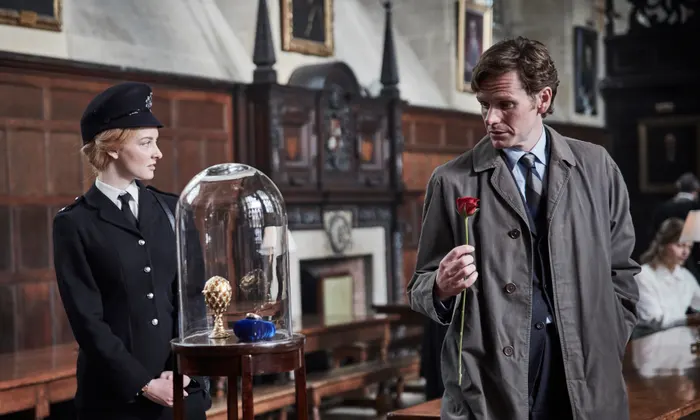
You pay attention to your privacy. You have your signature in important works that are watched all over the world, but you give very few interviews, you have very few photos and video recordings. What is the reason for this choice?
Russell Lewis: To be fair – very few people ask me for interviews. I had some experience of ‘exposure’ as a child performer. So, wherever possible, I do my best to avoid it. Celebrity is a pretty debased currency.
What were the most interesting viewer comments/feedbacks you have received so far, especially regarding the Endeavour and Lewis series?
Russell Lewis: Too many to count, I’m afraid. People are just very kind and generous about the show, for the most part – which is lovely for all of us involved in its making. You get the odd bit of nit-picking – typically to do with props/mise en scene issues. It’s unlikely that such-and-such a vehicle number plate wouldn’t be found in that part of England. From the off, we have always included a number of deliberate mistakes in each film for those who enjoy chivvying such things out.
Which detective series/movies and novels have you watched/read and liked in recent years?
Russell Lewis: Like much of the world, I’m a great admirer of Nordic Noir. The Killing, of course, felt like a game changer. The Bridge. Two fantastic central performances from Sofie Gråbøl and Sofia Helin, respectively. I recently watched the German/Austrian version of The Bridge, which, again, was terrific. Dexter was great fun. I liked The Alienist very much. The Serpent, which was made by Mammoth Screen, was utterly gripping. And I loved the five Agatha Christie adaptations they did with Sarah Phelps. As for novels, I never miss an Arkady Renko. Martin Cruz Smith is a master.
Why do you think crime is still one of the most read and watched genre?
Russell Lewis: It delivers order and justice in a world short on both.
If all the conditions were right, which detective character/novel in the world would you like to adapt into a TV series?
Russell Lewis: On the basis that ‘If you want to hear God laugh, tell him your plans’. I try not to tempt fate by giving voice to my heart’s desire. Seriously, I’ve been blessed with far greater good fortune than I could have ever imagined. To ask for anything more would be indecent.
